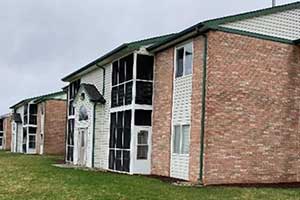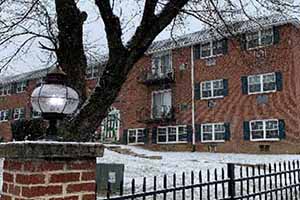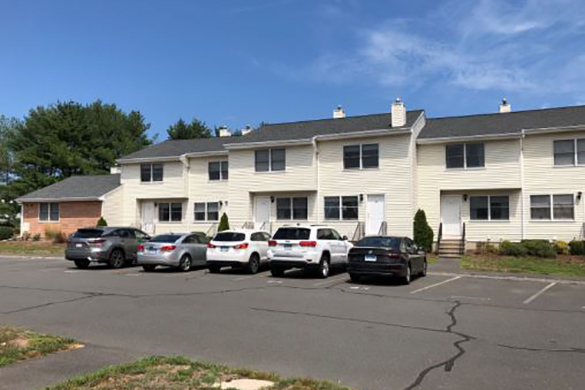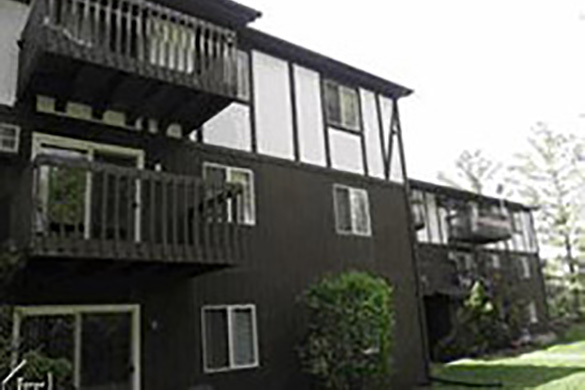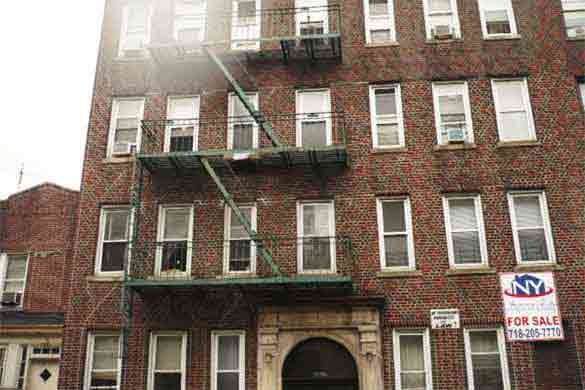Minneapolis Apartment Building Loans
At Select Commercial, our primary expertise in is in apartment/multifamily financing. We're dedicated to providing the most competitive rates and tailored solutions for multifamily investments in the area. However, if you're also exploring broader commercial real estate opportunities in other areas of Minnesota, our Minneapolis commercial mortgage page offers a wealth of information and resources. For those seeking comprehensive rates on all loan products available across the 48 states, our comprehensive commercial mortgage rate page offers competitive rates for loans starting at $1,500,000.
Minneapolis Multifamily Loan Rates - updated 05/15/24
| Multifamily Loan > $6Million | Get Free Quote | ||
|---|---|---|---|
| Loan Type | Rate* | LTV | |
| Multifamily 5 Yr Fixed | 5.63% | Up to 80% | |
| Multifamily 7 Yr Fixed | 5.57% | Up to 80% | |
| Multifamily 10 Yr Fixed | 5.54% | Up to 80% | |
| Multifamily Loan < $6Million | Get Free Quote | ||
| Loan Type | Rate* | LTV | |
| Multifamily 5 Yr Fixed | 6.09% | Up to 80% | |
| Multifamily 7 Yr Fixed | 5.98% | Up to 80% | |
| Multifamily 10 Yr Fixed | 5.95% | Up to 80% | |
Minneapolis Multifamily Loan Benefits
Minneapolis Apartment Loan rates start as low as 5.54% (as of May 15th, 2024)
• A commercial mortgage broker with over 30 years of lending experience
• No upfront application or processing fees
• Simplified application process
• Up to 80% LTV on multifamily financing
• Terms and amortizations up to 30 years
• Multifamily loans for purchase and refinance, including cash-out
• 24 hour written pre-approvals with no cost and no obligation
Our Reviews
2024 Minneapolis Multifamily Loan Market: Navigating Investment Opportunities Amid Curbed Construction

Minneapolis Poised to Benefit From Curbed Construction and Growing Employment
Minneapolis has regionally strong inventory growth starts to temper. Local apartment vacancy consistently ranked among the five lowest across major U.S. markets in the half-decade leading up to the pandemic. As a result, builders increased local stock at a rate faster than any other Midwestern metro between 2019 and 2023. This supply pressure coincided with household consolidation, reflected by a lower two- and three-bedroom unit vacancy rate than one-bedroom options. However, the pace of arrivals in 2024 falls to a five-year low, which should facilitate greater stability for existing units this year. The Bloomington, Plymouth-Maple Grove, and Uptown-St. Louis Park areas have each started to capture this momentum as vacancies trended downward entering 2024.
Suburban Assets Remain Popular as University Corridors Gain Attention
A substantial lift to transaction velocity across the metro in the latter half of 2023 was the result of improved activity among sales above the $20 million threshold. More of these deals may close this year, given the metro's high volume of units delivered over the past three years. Among private investors, activity has been moving north of the river from West Bank to the University area. Near Dinkytown, operators benefit from a stable renter base of students, while local mid-tier rent growth consistently outpaces the segment's marketwide mean. Population growth and household formation dynamics returning to pre-pandemic norms benefit trading activity in 2024, with Minneapolis proper and western suburbs likely garnering the most buyer interest.

2024 Multifamily Market Forecast for Minneapolis
- EMPLOYMENT: The addition of 15,000 jobs on net will allow Minneapolis's employment base to breach 2 million in total and exceed its previous record high noted in 2019.
- CONSTRUCTION: After expanding inventory by 3.0 percent on average over the last four years, builders reduce the number of completions by 2,000 units in 2024. Still, stock grows by 2.1 percent.
- VACANCY: A Midwest-high absorption total and a reduced delivery slate will slow the pace of vacancy expansion this year. As a result, the figure lifts marginally to 5.9 percent.
- RENT: Despite a smaller increase, vacancy still reaches its highest point since 2010, weighing on rent growth. This prompts the effective rate to rise slightly to $1,568 per month on average.
Latest Expert Insights from Stephen A. Sobin
Stephen A. Sobin, the president of Select Commercial Funding LLC, is a renowned expert in the field of multifamily financing. His insights and perspectives are regularly sought by leading industry publications. Here are his latest contributions that highlight his deep understanding of the multifamily financing landscape and his commitment to providing clear, insightful analysis on key industry issues.
Persistent Inflation and Its Effects on CRE
In an article featured in Multi-Housing News, Stephen Sobin highlighted that while inflation is still a challenge for the Federal Reserve, there are many positive signs for the commercial real estate industry. The headline Consumer Price Index rose 3.2 percent for the year ended Feb. 29, a figure 20 basis points lower than the Dec. 31, 2023, rate. read the full article.
Commercial Spotlight: Mid-Atlantic Region In this four-state powerhouse, smaller metros are thriving.
In a feature in Scotsman Guide, the Mid-Atlantic Region's real estate dynamics are explored, highlighting its resilience and growth amidst the pandemic.
Stephen Sobin of Select Commercial Funding LLC shared insights on the New York market's allure and the challenges buyers face. He noted the shift from primary urban areas to tertiary markets due to evolving preferences and financial conditions. For a deeper dive into Sobin's analysis, read the full article.
What the New Jobs Report Means for CRE
In an article titled "What the New Jobs Report Means for CRE" in Commercial Property Executive, Stephen Sobin shared his perspective on the latest jobs report and its implications for the Commercial Real Estate (CRE) sector. He highlighted the challenges posed by high interest rates and the prevailing uncertainty in the market. Sobin remarked, "Sellers aren’t selling, buyers aren’t buying... Everyone is waiting because no one knows what to expect." For a detailed analysis and more of Sobin's insights, read the full article.
Decoding "Junk Fees" in Rental Housing
In another latest contribution to Multi-Housing News, Sobin provided expert commentary in an article titled "What's Next for Junk Fees? The Industry Weighs In". He clarified the difference between legitimate fees collected for various third-party services and so-called "junk fees". Sobin emphasized the importance of borrowers understanding their rights in negotiating all loan terms and the obligation of lenders to disclose all fees.
Understanding the Impact of Federal Reserve's Decisions
In a recent article titled "How the Fed's Pause on Interest Rates Impacts Multifamily" published by Multi-Housing News, Sobin shared his expert insights on the Federal Reserve's decision to pause interest rate hikes. He accurately predicted that the Fed would not raise rates in June, citing recent bank failures and lingering concerns about a potential recession.
Stay tuned for more expert insights from Stephen A. Sobin on the evolving multifamily financing landscape.
Frequently Asked Questions
Is multi-family real estate a good investment in 2024?
Ongoing inflation and high interest rates significantly slowed the pace of the commercial real estate market in 2023. Investors and market experts were hoping for considerable decreases in commercial mortgage rates in 2024. The expectation was that the Fed would get inflation under control and then lower rates. However, as we move into the middle of 2024, inflation is still running higher than the Fed would like. The Fed has hinted that they do not anticipate lowering rates in 2024. In fact, commercial mortgage rates have been steadily rising. Some property types, however, are outperforming others. Apartment buildings in desirable neighborhoods are performing better than other asset classes, as owners have been able to raise rents and keep up with rising interest rates. Multifamily properties in smaller and less desirable areas, or areas where unemployment is rising, are not performing as well, as rent increases are harder to implement. In the office sector, only medical office buildings are generating lender interest. General office properties have underperformed the market as a result of the work from home policies established during the Covid-19 pandemic. Office demand is unlikely to return to pre-Covid levels making the office sector extremely hard to navigate right now. In the retail sector, essential service businesses, such as grocery stores and pharmacies, are performing well, while traditional brick and mortar retailers are still feeling the effects of Covid-19 and the competition from online retailers. Many malls are experiencing record high vacancy levels, and some are being repositioned for other purposes. In the industrial sector, we are seeing strong demand for warehouse and distribution space to accommodate the online retailers. Industrial space in urban markets and close to transportation are performing very well. One positive is that a large number of CMBS loans are coming due in 2024. Even in a high interest rate environment, owners of these properties will have to refinance or sell. This should lead to some activity in the commercial mortgage market in 2024.
There are many different types of lenders offering a myriad of different loan products to finance the acquisition or refinance of apartment properties nationwide. These lenders include agency lenders (Fannie Mae and Freddie Mac), local and national banks, insurance companies, credit unions and private lenders.
Most lenders write apartment loans for five, seven or ten years (fixed) with a 30 year amortization. It is also possible to obtain loans that are fixed for up to 30 years, although this is not the norm. Rates are typically based on a margin over the corresponding US Treasury rate.
Lenders offer non-recourse to strong borrowers and solid properties. The borrower will be expected to have strong credit, good net worth and liquidity, and experience owning and managing similar properties. The property will be expected to demonstrate solid long term positive cash flow, be in good to excellent condition, and be located in a strong market with low vacancy rates.
Apartment loans are typically screened and pre-approved in 2-3 days. Since lenders require appraisals, environmental and property condition reports, and title, closings will usually take 45-60 days from application.
Recent Banking Failures Likely To Impact Minnesota Multifamily Lending
The recent collapse of Silicon Valley Bank and Signature Bank has sent shockwaves through the business and real estate lending sectors. As a leading MN commercial mortgage broker with over 30+ years of experience, Select Commercial knows that the multifamily sector is not immune to these developments. Here's how these banking failures could impact multifamily lending:
Regional Banks Under Pressure
Regional banks, which provide significant liquidity to the apartment sector, are likely to face increased pressure. The collapse of SVB and Signature Bank has raised concerns about the stability of smaller banks. This could lead to a pullback from regional banks providing loans to the multifamily sector, making it more challenging for developers and investors to secure financing.
Development Challenges
Developers could face significant challenges, particularly in securing construction loans and value-add renovation dollars. The current environment is leading to a slowdown in construction lending and a return to traditional underwriting and banker skepticism. This could particularly impact the affordable housing sector, where developers need their financing lined up to secure tax credits.
Volatility in the CMBS Market
CMBS loans have experienced turbulence following the bank failures. This volatility could impact a new crop of lenders that have emerged over the past half-decade, many of which are capital markets-dependent. If the securitization market stabilizes, some of the CMBS and bridge lenders may re-enter the market to fill the liquidity gaps left by regional lenders.
Interest Rate Uncertainty
The bank failures could also contribute to uncertainty around commercial mortgage rates. If these failures lead to a slowdown in rate hikes by the Federal Reserve, this could potentially benefit the commercial real estate market in the long run. However, it's too early to predict the exact impact on apartment transaction volume.
In summary, the recent banking failures have the potential to significantly impact how banks handle multifamily loans. We will closely monitoring these developments to provide the best advice and service to my clients during these uncertain times.
Apartment Loan Types We Serve
If you are looking to purchase or refinance a Minneapolis apartment building, don't hesitate to contact us. We arrange financing in the city of Minneapolis for the following:
- Large urban high-rise multifamily buildings
- Suburban garden multifamilycomplexes
- Small multifamily buildings containing 5+ units
- Underlying cooperative multifamily building loans
- Portfolios of small multifamily properties and/or single-family rental properties
- Other multi-family and mixed-use properties
Apartment Loan Helpful Articles
How to Get the Best Rate on a Multifamily LoanHow to Buy an Apartment Building
Uncomplicated Underwriting
How to Invest in an Apartment Building
Are You Shopping for an Apartment Building Loan?
How To Get The Best Rates On An Apartment Refinance
Recent Multifamily Loan Closings
Whether you are purchasing or refinancing, we have the right solutions available for your multifamily mortgage loans. We will entertain apartment loan requests of all sizes, beginning at $1,500,000. Get started with a Free Commercial Mortgage Loan Quote.
Minneapolis Apartment Loans
Select Commercial provides apartment loans throughout Minneapolis, Minnesota including, but not limited to, the areas below. We provide apartment loans in most major cities throughout the United States.




